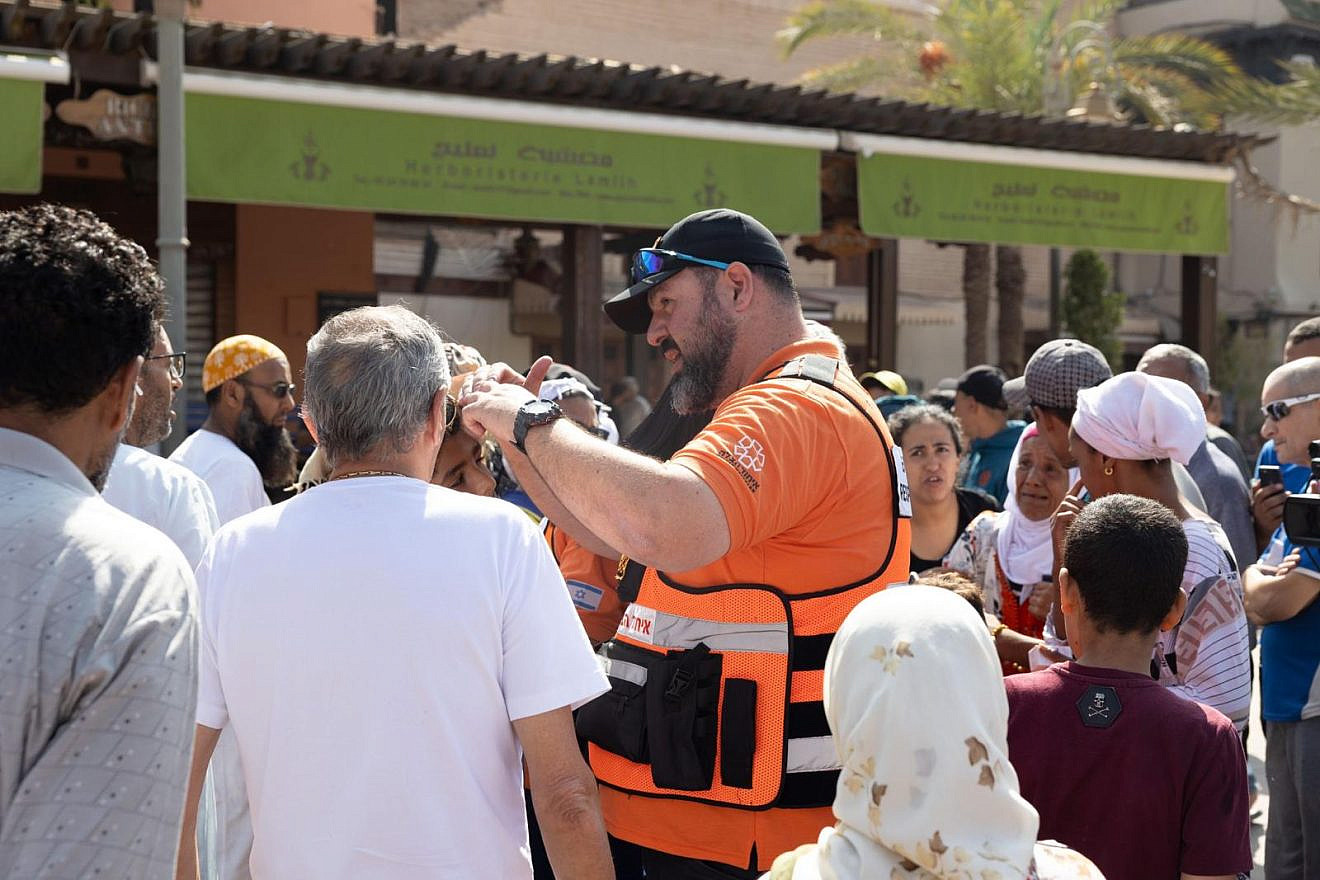On Saturday afternoon, I was asked to join a jump team of first responders heading to Morocco to provide initial medical treatment and assess how the organization I volunteer for, United Hatzalah, could best assist survivors of the earthquake that killed more than 2,000 people there on Friday.
As a paramedic and volunteer first responder who is always on call, I’m used to dropping everything—but this emergency was a lot bigger than the ones I’m usually called to, which at most involve a handful of patients. The situation in Morocco involves a large segment of the country’s population. How could I not help? I immediately packed a bag.
As the town where I live, Kanaf, is in the far north of Israel, I only had about 30 minutes from the time I got the call to leave for the airport; the jump team was to depart that night.
Everything was moving very quickly, there was no time to absorb information or prepare for what was ahead. We had very little information to go on until we hit the ground in Morocco. Leaving my family behind, and calling out of work for a week, was a bit surreal, but I knew people needed help, so that’s what I did.
We arrived in Marrakech on Sunday morning after a stopover in Europe. The jump team’s goal was to meet with community leaders and government officials and map out where help was most needed. This was done in order to pave the way for a much larger team, should one be needed.
From what we have seen so far, the need here is great, and everyone we meet is thankful that we came to help. In spite of the stress and tragedy of the situation, I’m happy to be here to pave the way for a larger team, to enable them to reach more people, more efficiently.
As we travel through the mountain villages to the southwest of Marrakech, areas local teams haven’t been able to reach yet, we are gaining a much greater understanding of what’s needed here. We focused on these areas specifically because other agencies haven’t been here yet and there are no local hospitals in the region. We’ve gained a much greater understanding of their immediate basic needs and are trying to provide as best we can, while connecting the individuals we help with local resources.
The overall impression I am left with, based on my interactions with all those I’ve met with and helped thus far, is one of simple shock. The people here lost everything, including their homes, in a matter of seconds.
We learned of one such family from a representative of the local Jewish community in Marrakech. The family, whose home was in the old city, had been left with nothing. Some family members were in shock, while others were strong and resilient; the head of the household had still opened his store, despite losing his house.
We worked with the family to help them process the situation and made sure to connect them with local resources—but those resources are spread thin. Outside help is needed, and we relayed that back to our teams in Israel.
I hope that in the coming days we are able to reach many others, and that our second and much larger team will arrive soon to continue and widen the scope of the work we have begun. I am proud to be here to share hope with the survivors and pave the way for additional aid for them.


























